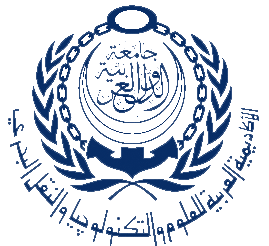- Code: CCS 966
- Credit hrs: 25
-
Prequisites:
- Marine Officer or SAR Operator/Officer or VTS Officer or Coast Stations Officer
Outlines
Course Outline
- Introduction: The position of the SMCPs in maritime practice.
- General: Procedures - Spelling - Message markers - Responses - Distress, urgency and safety signals - Standard organizational phrases - Corrections - Readiness - Repetition - Numbers - Position - Bearings - Courses - Distance - Speed - Times - Ambiguous words
- Glossary: A limited number of technical terms which do not appear in the text of the IMO SMCPs.
- Overview on the GMDSS.
- Special communication phrases extracted from the SMCPs manual (Part A: External or on-Board & Part B: Operating ship handling, Safety onboard, Cargo and cargo handling or Passenger care) according to the trainees requirements, specialized and background.
Course Exercises
Practical operational procedures including the followings:
- VHF-RT procedures operation.
- VHF-DSC procedures operation.
- Practice on the special communication phrases those extracted from the SMCPs manual according to the trainees requirements, specialized and background by using the proper communication equipment.
Program
Communication and Computing Systems
Objectives
- The IMO was adopted the resolution A.918 (22) for the use of SMCPs and has recommended a wide circulation to all prospective users and all maritime education authorities. The SMCPs include phrases, which have been developed to cover the most important safety-related fields of verbal: Shore-to-vessel (and vice-versa), vessel-to-vessel and on-board communication. The trainee who will pass this course successfully will be able to communicate by using standardised language used during navigation at sea in different situations. In addition to, this course provides both theoretical and practical training on how to use the SMCPs including the forms of distress, urgency and safety, as well as special communication phrases. All are extracted from the SMCPs manual for the purposes of: On-board communication, vessel-handling operation, safety on-board, cargo and cargo handling or passenger care. The practical exercises’ part of this course tailored according to the trainee’s requirements, specialising and background.
Start your application
Start The your journey to your new career.


